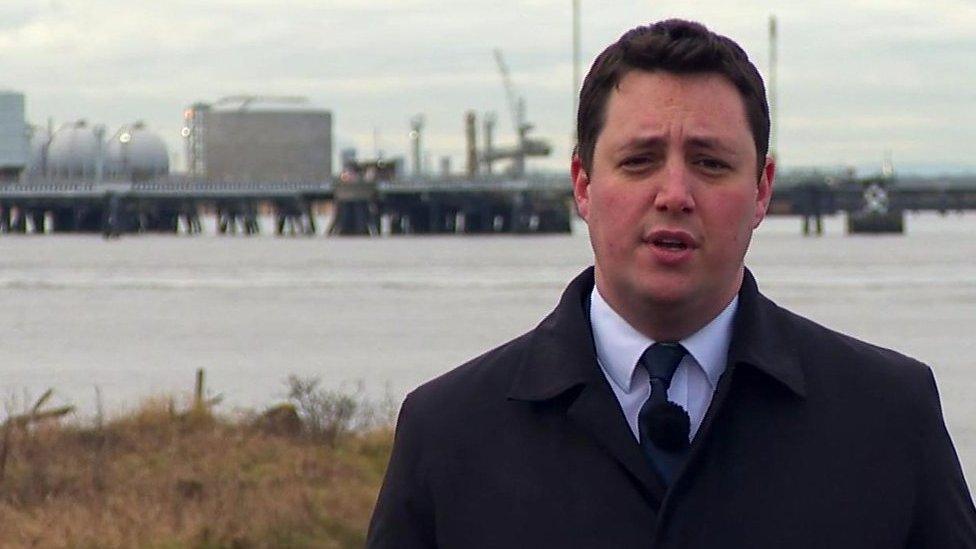First - and biggest - freeport opens on Teesside
- Published
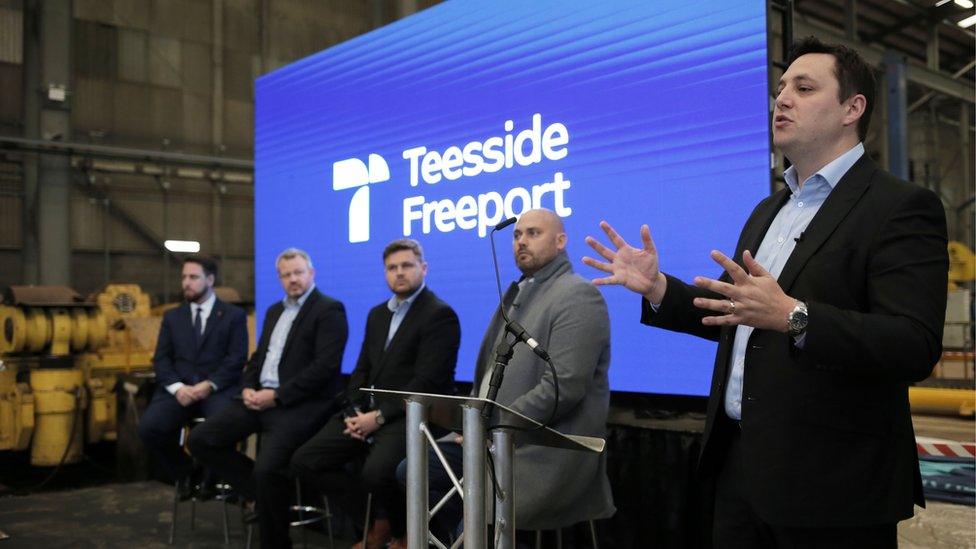
Tees Valley Mayor Ben Houchen and Conservative Redcar MP Jacob Young were joined by business leaders for the brand launch last month
The first - and what is billed as the biggest - of eight freeports announced by the government has opened.
Teesside Freeport will create more than 18,000 jobs over the next five years, officials have claimed.
It will also "add more than £3bn to the economy once fully developed", the Tees Valley Mayor has said.
The facility allows goods to be imported without tariffs, excise duties and other taxes being paid before materials are shipped on again.
Eight were announced in the Budget in March, with the other seven to be located at East Midlands Airport, Felixstowe and Harwich, Humber region, Liverpool City Region, Plymouth, Solent, and the Thames area.
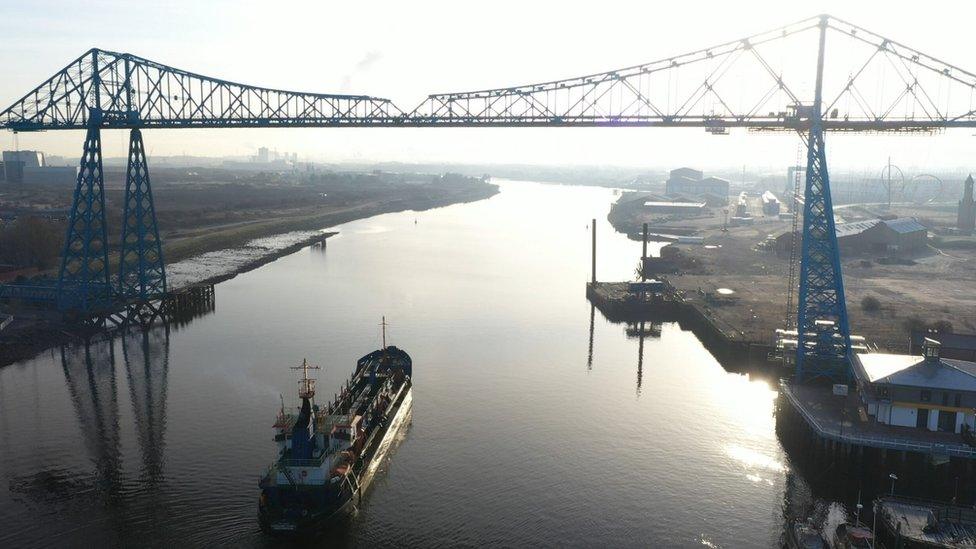
The Teesside facility is the first of eight, announced in the March budget, to open
The Local Democracy Reporting Service said Tees Valley Mayor Ben Houchen said: "The day has finally come - after years of campaigning and shouting about the transformative potential of a freeport for Teesside, Darlington and Hartlepool, we're at last open for business.
"We're throwing our doors open to the world, showing businesses that we're a truly outward-looking, international region ready to welcome the cutting edge sectors of the future."
Neil O'Brien, Minister for Levelling Up, said: "I am delighted to see the Teesside freeport begin operations today, putting the region at the forefront of the UK's drive to net zero [carbon] and bringing thousands of high-skilled jobs to the area.
"Freeports will help to generate prosperity and spread opportunity by driving trade and innovation as we level up in every corner of the United Kingdom."
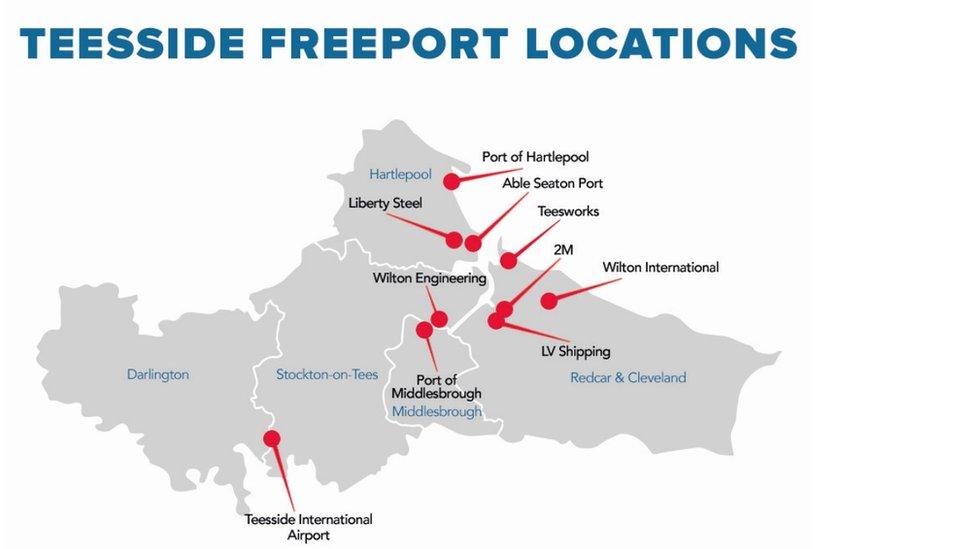
Trade zones include Teesworks, Wilton Engineering, Liberty Steel, Teesside Airport, LV Shipping, Teesport and the ports of Middlesbrough and Hartlepool
Local authorities will be able to retain 100% of business rates growth generated by freeport tax sites for the next 25 years, with the aim of providing them with financial security to invest in regeneration in their area.
But last month spending watchdog the Office for Budget Responsibility (OBR) judged the main effect of the new freeports being created by the government would be to alter the location, rather than the volume of economic activity.
However, it did find tax incentives were more generous than in old enterprise zones.
The union Unite said it would be seeking assurances that genuine protections and fair rewards were provided for workers and it has set up a committee to oversee pay and conditions in the new freeport areas.
Regional officer Pat McCourt said it was "determined that there will be no race to the bottom" at the Teesside freeport, which is being governed by a board managed by Mr Houchen's Tees Valley Combined Authority.

Follow BBC North East & Cumbria on Twitter, external, Facebook, external and Instagram, external. Send your story ideas to northeastandcumbria@bbc.co.uk, external.
Related topics
- Published28 October 2021
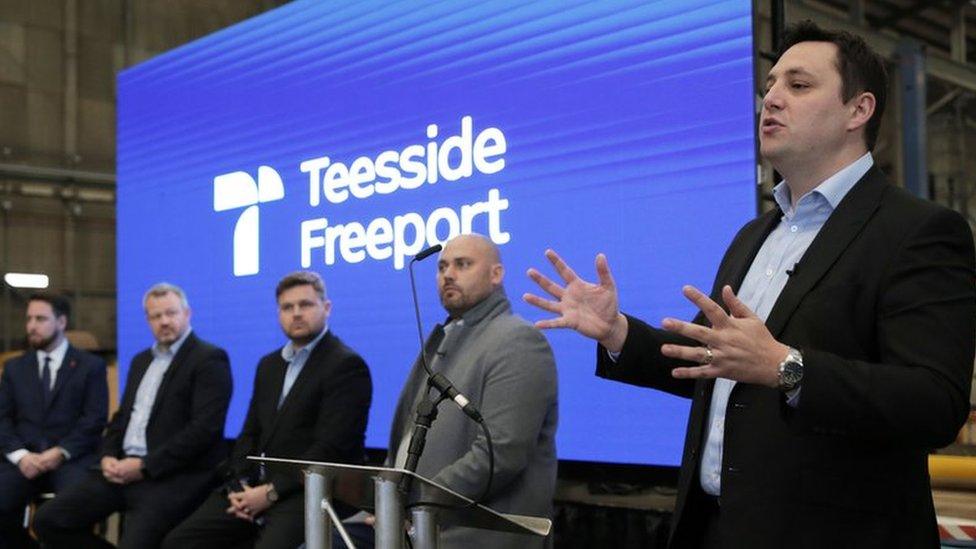
- Published22 March 2023

- Published10 May 2021
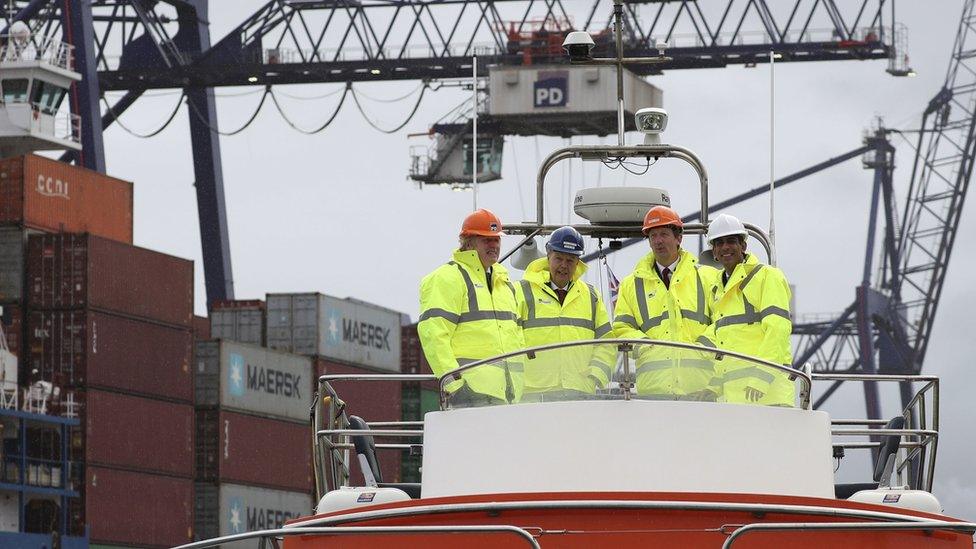
- Published29 January 2018
